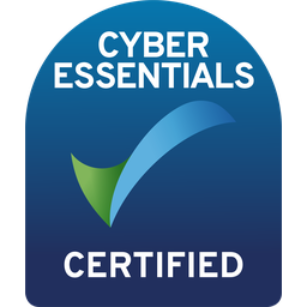
What is Cyber Security? Definition and Best Practices
How ATS Connection’s Cybersecurity Solutions Stop Scam Emails with Intuitive AI Learning.
Cyber security is an essential element for any organisation in this digital age. It is the practice of protecting networks, systems, and programs from digital attacks. It is a combination of technologies, processes, and practices designed to protect networks, computers, programs, and data from attack, damage, or unauthorised access. To ensure that all devices are protected from malicious activity, cyber security best practices should be implemented both on and off the company’s network.
Strong passwords, up-to-date anti-virus software, scanning for malware, and monitoring network activity should all be employed as part of cyber security best practices. Additionally, employees should be trained in the basics of cyber security, such as using strong passwords, avoiding suspicious websites, and not clicking on malicious links. Companies should also implement data encryption, firewalls, and other security measures to protect confidential information from attackers.
By following these best practices and deploying the necessary security measures, companies can protect their data and networks from malicious activity. Cyber security is essential to any organisation and can help mitigate the risks of data loss or theft.
Why is cyber security important?
The digital world is becoming increasingly interconnected, and as such, cyber security has become a top priority for businesses and individuals alike. Cyber security is an essential tool to protect against malicious attackers and safeguard personal and financial data, as well as intellectual property. It is also key to ensuring the security and privacy of online data and communications.
Organisations of all sizes must be aware of the importance of cyber security, as it is essential for protecting against costly data breaches. Cyber security also helps to prevent malicious software from infecting computers and networks, as well as protecting against identity theft and fraud.
Investing in the latest cyber security solutions and technologies is the best way to protect your organisation from potential threats. By implementing the right measures, organisations can ensure their data is secure and prevent any potential data breaches. Cyber security is an essential tool for protecting businesses and individuals alike, and should not be overlooked.
The costs of cyber security breaches are rising.
In today’s digital world, cyber security is more important than ever. Companies can suffer significant financial damage as a result of a cyber security breach, and the cost of each incident continues to rise.
A recent study revealed that the average global cost of a cyber security breach is £3.92 million. This figure takes into account a range of factors, such as the cost of mitigating the breach, restoring systems, and lost business opportunities. Furthermore, the study also found that the cost of a cyber security breach has increased by 11% over the past two years.
These statistics are a stark reminder of the importance of investing in robust cyber security measures. Such measures can help to minimise the risk of a cyber security breach and the associated financial costs. Companies should ensure that their cyber security strategies are regularly reviewed and updated to protect them from the latest threats.
Cyber attacks are increasingly sophisticated.
In today’s digital world, cyber security has become an increasingly important concern for businesses, organisations and individuals alike. Cyber attacks are an ever-growing threat to organisations, with attackers using advanced techniques to breach security defences and gain access to confidential data and systems. What is particularly worrying is that cyber attackers can remain undetected for long periods, enabling them to wreak havoc on an organisation’s systems and data.
Cyber attackers may employ a variety of techniques to achieve their goals, such as malware, phishing or social engineering. Ransomware is a particularly dangerous tool in the hands of cyber attackers, as it enables them to lock down a system and demand payment in return for access to the system. Cyber attackers may also target an organisation’s infrastructure, such as its networks or servers, to gain access to sensitive data. Additionally, distributed denial-of-service (DDoS) attacks can be used to overwhelm a system and prevent legitimate users from accessing it.
Organisations need to be aware of the threats posed by cyber attackers and take the necessary steps to protect their systems and data from attack. This includes implementing comprehensive security measures, such as firewalls, antivirus software and two-factor authentication, as well as educating staff on cyber security best practices. By taking the
Cyber crime is a big business.
With the prevalence of the internet, cyber crime is an ever-growing concern that cannot be ignored. Criminals are increasingly taking advantage of the internet to steal data, money and identities. To stay safe online, it is important to be aware of the potential risks of engaging in online activities.
One of the most common methods used by cyber criminals is malicious software, such as viruses and spyware. To protect yourself from malicious software, you should install antivirus software and a firewall on your computer. This will help to protect your computer from malicious software and keep your data safe.
It is also important to keep your software up to date, as this can help to reduce the risk of becoming a victim of cybercrime. Strong passwords are also vital for protecting your personal information. Be sure to use different passwords for different accounts, and never share your passwords with anyone.
Be aware of suspicious emails and websites, and never click on links or download files from unknown sources. Regularly back up your important data in case of a computer system failure or breach. This will help to protect you from data loss in the event of a cyber attack.
By following these tips, you can help to protect yourself from cyber crime and keep your data safe.
Types of cyber threats
As the world becomes increasingly reliant on technology, it is important to protect our data from cyber threats. Cyber security is a vital part of maintaining our online safety and security, and there are many different types of threats we need to be aware of.
Phishing attacks are a common way for attackers to gain access to sensitive information, such as passwords and credit card numbers. These malicious emails are designed to trick users into revealing their personal data, so it is important to be vigilant when opening any emails from unknown sources.
Malware is another type of cyber threat, and can include viruses, worms and trojans. These malicious pieces of software are designed to damage systems or steal information, which can have serious implications for the victim. Ransomware is another form of malware which encrypts data on a user’s system and then demands payment for its release.
DDoS attacks are another type of cyber security threat which involves flooding a system with requests, overwhelming the server and causing it to crash or become unresponsive. Man-in-the-middle attacks are another form of attack which involve intercepting communications between two parties, allowing them to eavesdrop or manipulate the data.
Finally, social engineering is a type of attack which uses psychological manipulation to gain access to sensitive information
What are the five types of cyber security?
Cyber security is an increasingly important concern in today’s world, as malicious attacks on computers, networks, applications, information and end-users become more common. It is vital that businesses and individuals take steps to ensure their systems are secure and protected.
Network security is a key element of cyber security; measures must be taken to protect computers and networks from malicious attacks. This could include using firewalls, encryption and other security technologies.
Application security is also essential; security measures must be taken to ensure applications are not vulnerable to attack. This could include patching applications regularly, using secure coding practices and running application security tests.
Information security is important to protect data from unauthorized access. This could involve using access control, encryption and other measures to protect information.
End-user security is also important; measures must be taken to protect users from malicious attacks. This could involve using secure passwords, two-factor authentication and other measures.
Finally, physical security measures must be taken to protect physical assets from unauthorized access. This could involve using CCTV, physical locks and other measures.
By taking the necessary steps to ensure cyber security, businesses and individuals can protect themselves from malicious attacks.
1. Critical infrastructure cyber security
Cyber security is an increasingly important field, especially when it comes to the protection of critical infrastructure. Critical infrastructure cyber security is the protection of networks, systems, and programs from digital attacks. It is essential to secure critical infrastructure to protect public health and safety, economic security, and national security.
Organizations should implement a variety of cyber security measures to protect against digital threats. This includes implementing strong passwords, using secure networks, regularly updating software, and monitoring for suspicious activity. Identifying and mitigating vulnerabilities in critical infrastructure is also essential to reducing the risk of a cyber attack.
Organizations should invest in security solutions that provide real-time monitoring and threat detection capabilities. Additionally, organizations should create a comprehensive incident response plan to quickly respond to and mitigate any cyber security incidents. By properly investing in cyber security measures, organizations can protect against the ever-evolving digital threats they face today.
2. Network security
As the world becomes increasingly digitalised, cyber security has become an increasingly important part of any organisation’s operations. Network security is the process of protecting a computer network from malicious activity, and involves the use of various security measures, such as firewalls, encryption and anti-virus software, to protect the network from external threats. Network security is essential for any organization to protect its data and systems from unauthorized access and malicious attacks, and should be regularly monitored and updated to ensure that any new security threats are addressed.
In addition to technical security measures, it is also important to educate users on cyber security best practices and to regularly test the network for vulnerabilities. By doing this, organisations can ensure that their networks are secure and that their users are aware of the risks associated with cyber security.
In summary, network security is a critical component of any organisation’s operations, and should be regularly monitored and updated to ensure that any new security threats are addressed. In addition, educating users on cyber security best practices and regularly testing the network for vulnerabilities can significantly enhance the security of an organisation’s networks.
3. Cloud security
In the digital age, cyber security is of paramount importance. With more and more data and services being stored in the cloud, it is important to ensure that this data is kept safe and secure. Cloud security is a set of measures designed to protect the data stored in cloud servers from malicious actors.
Encryption is one of the most important tools in cloud security, as it helps to protect data in transit and at rest. Authentication and authorization are also essential for cloud security, as it helps to ensure that only authorised users can access the data. Firewalls and intrusion detection systems also help to protect data from malicious actors.
However, cloud security is not just about preventing malicious actors from accessing data. It also involves ensuring that the data stored in the cloud is safe in the event of a disaster, such as a natural disaster or an outage. Cloud security also includes measures to ensure that data is not lost in the event of a system failure or a security breach.
In summary, cloud security is a set of measures designed to protect data stored in cloud servers. It involves using encryption to protect data in transit and at rest, and ensuring that cloud users are authenticated and authorised to access data. Additionally, cloud security also includes measures to protect data from malicious actors, such as firewalls
4. IoT (Internet of Things) security
In the age of the internet of things (IoT), it is more important than ever to stay up-to-date with the latest cyber security protocols. IoT security requires the implementation of multiple layers of security protocols in order to protect connected devices from malicious attacks. To ensure that data and personal information is secure, IoT devices must be secured at the device, network, and application layers. This includes having secure user authentication, encryption, and authentication of data being transmitted to and from the device.
Companies must have policies in place to ensure that all IoT devices on their network are secure and up-to-date with security patches and updates. Network segmentation and monitoring should be used to identify and respond to any suspicious activity on the network. Security audits should also be conducted regularly to ensure that all IoT devices on the network remain secure. In this way, companies can be sure that their data and their customers’ data is safe and secure.
5. Application security
In today’s increasingly digital world, cyber security is of the utmost importance. Application security is an important part of this, as it refers to the measures taken to secure the information and data within an application from malicious attacks. Companies need to be sure that the applications they use are secure, as they can contain sensitive business information.
There are various measures that can be taken to ensure application security. These include using strong passwords, encryption of data, and regular software updates. It is also advisable to regularly monitor the application to detect any security breaches or malicious activity. Companies should also consider implementing two-factor authentication to further protect their applications.
By taking these measures, companies can ensure that their applications are secure and protect their business from malicious attacks. Cyber security is an ever-evolving field and companies must stay up to date with the latest techniques and technologies in order to ensure their applications remain protected.
The legal requirement for cyber security
In today’s digital age, cyber security is an essential consideration for any business. Companies must ensure they have the appropriate measures in place to protect customer and employee data from malicious actors. This includes complying with relevant legislation and taking appropriate technical and organisational measures to protect their systems from cyber security threats, such as keeping their systems and software up to date.
It is also important that companies have a clear policy on how they will respond to cyber security incidents and ensure that all staff are aware of their responsibilities. Companies must also make sure that customers’ personal data is protected and stored securely, and that access to customer data is limited to those who need it. Furthermore, any sensitive data should not be stored on public networks and all customer data should be encrypted.
By taking these steps, companies can make sure they have the right cyber security measures in place to protect customers and employees from cyber security threats.
Start your journey to being cyber secure today.
In today’s digital age, cyber security is more important than ever. Fortunately, there are a number of steps you can take to protect yourself from online threats. To get started, it’s essential to familiarise yourself with the basics of cyber security.
First, make sure your computer is protected with a strong antivirus software. You should also use secure passwords that are unique and difficult to guess. Regularly update the operating system and applications on your devices, and avoid clicking on suspicious links, or downloading files from untrusted sources.
When it comes to your Wi-Fi network, make sure it is secure with a strong password. Be aware of potential phishing scams and avoid providing personal or financial information online. To further protect your data, use a Virtual Private Network (VPN) when connected to public Wi-Fi networks.
Finally, make sure your data is securely backed up, so you can recover it in the event of an attack. Educating yourself and your colleagues on the latest cyber security threats is also a must. By taking all of these steps, you can feel confident that your data is safe and secure.
Speak to an expert
In today’s digital world, it is essential to ensure your online data is secure. Cyber security experts are essential to help protect your data from potential malicious attacks and identify any weaknesses in your system. They can provide advice on how to stay safe online and secure your data, as well as suggest effective security policies and protocols.
In addition, cyber security experts can help you to understand the latest cyber threats and how to protect yourself from them. They can also help you to identify and respond to cyber security incidents quickly and effectively.
Overall, it is important to ensure your data is secure. Cyber security experts can provide the advice and support you need to protect your online data from potential malicious attacks. They can help you to stay safe online and ensure your data is secure.
Take action today and secure your data
Don’t wait for the unexpected to happen. Contact ATS Connection now to fortify your data’s defenses and secure your business’s future. Your data deserves nothing less than the best protection.

